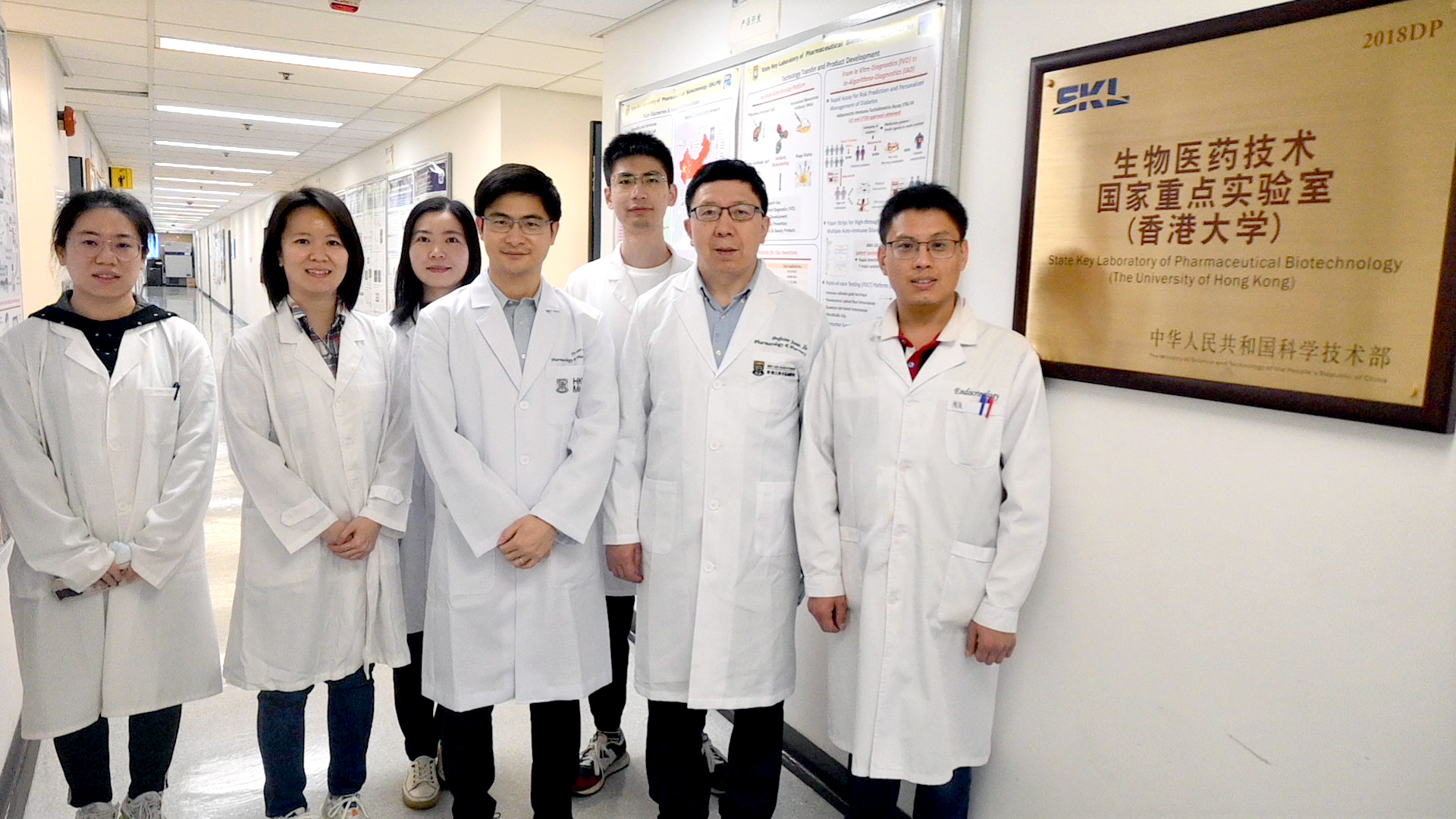16 February 2023
A research team from LKS Faculty of Medicine, the University of Hong Kong (HKUMed) has developed thyroid hormone (TH) - encapsulated nanoparticles modified with adipose-homing peptide, which selectively transport TH to adipose tissues. This will advance the treatment of obesity-related medical complications with TH by overcoming its severe adverse effects caused by systemic administration. The new findings are now published in Nature Communications [link to publication].
Background
Obesity is a major risk factor for a myriad of life-threatening chronic diseases such as diabetes, cardiovascular; and neurodegenerative disorders. TH is an ancient hormone with therapeutic potential for obesity and its related medical complications by promoting energy expenditure. However, despite enormous research efforts in the past decades, clinical trials had failed to demonstrate obvious clinical benefits of chronic systemic administration of TH on weight loss in obese individuals. Furthermore, due to widespread expression of TH receptors, systemic administration of TH often leads to serious deleterious effects on multiple organs, such as tachycardia, heart attack, muscle wasting, and osteoporosis. Skeletal muscle and adipose tissues are thought to be the two major target organs where TH exerts its stimulatory actions on metabolic rate and energy expenditure. However, whether selective delivery of TH to adipose tissues is sufficient to induce weight loss remains unclear.
Research method and findings
The research team developed TH-encapsulated nanoparticles, modified with an adipose-homing peptide to selectively deliver TH to adipose tissues. Remarkably, the researchers found that adipose-targeted delivery of TH is substantially more potent than systemic TH therapy in reducing obesity and its related metabolic complications, with no adverse effect on other non-adipose tissues. Mechanistically, the study uncovered that adipose-targeted TH therapy can convert ‘bad’ white fat to ’good’ brown fat, which can burn calories by creating heat, whereas systemic TH therapy is unable to induce ‘browning’ of white fat due to its suppression of sympathetic nerves. Furthermore, the research team made an unexpected finding that adipose-targeted delivery of TH effectively alleviates hypercholesterolemia and atherosclerosis, a major cause of coronary heart disease and ischemic stroke.
Research significance
‘This is the first proof-of-concept study showing that nanoparticle-based targeted delivery of TH to adipose tissue is an effective and safe pharmacotherapy for obesity and its related cardiometabolic complications. The findings have also resolved a long-standing mystery of why systemic TH therapy failed to reduce body weight, thus reigniting the hope of using this ancient hormone for treatment of common chronic diseases through nanoparticle-based precision target delivery,’ remarked by Professor Xu Aimin, Director of State Key Laboratory of Pharmaceutical Biotechnology and Professor of Department of Medicine, School of Clinical Medicine, HKUMed.
About the research team
The research team is led by Professor Xu Aimin, Director of State Key Laboratory of Pharmaceutical Biotechnology and Professor of Department of Medicine, School of Clinical Medicine, HKUMed and Dr Wang Weiping, Assistant Professor of Dr Li Dak-Sum Research Centre and Department of Pharmacology and Pharmacy, HKUMed. Dr Chen Kang, a post-doctoral fellow of State Key Laboratory of Pharmaceutical Biotechnology and Department of Medicine, School of Clinical Medicine, HKUMed is the first author. Professor Eric Honoré from Université Côte d’Azur, Centre National de la Recherche Scientifique, Institut National de la Santé et de la Recherche Médicale, Institut de Pharmacologie Moléculaire et Cellulaire and Professor Karen Lam Siu-ling from State Key Laboratory of Pharmaceutical Biotechnology and Department of Medicine, School of Clinical Medicine, HKUMed, are co-authors.
Acknowledgements
This work was supported by Hong Kong Research Grants Council - Area of Excellence (AoE/M/707-18), General Research Fund (17125317), and Collaborative Research Fund (C7037-17W), National Natural Science Foundation of China (82070860 and 82161138026) and Hong Kong Health and Medical Research Fund (08192146).
Media enquiries
Please contact LKS Faculty of Medicine of The University of Hong Kong by email (medmedia@hku.hk).


Follow HKUMed